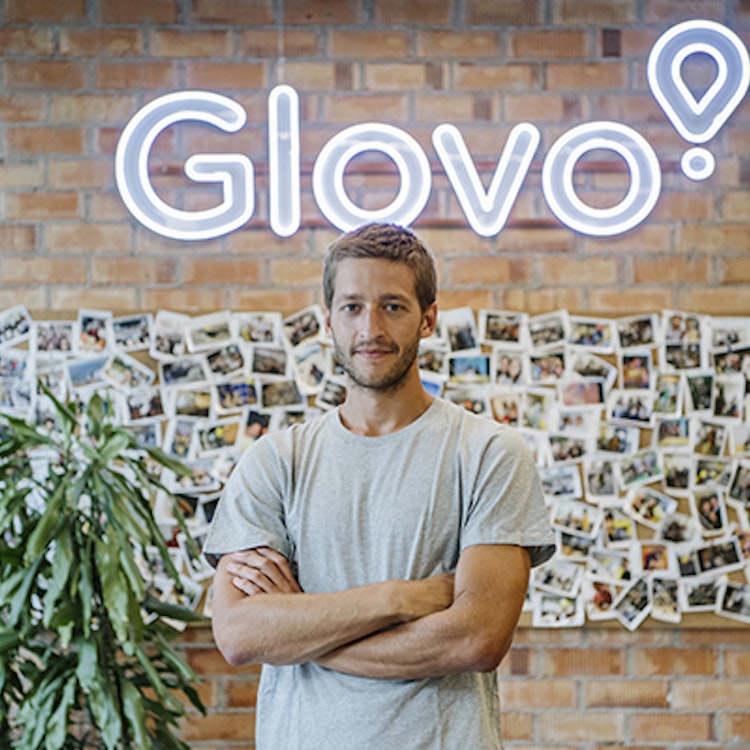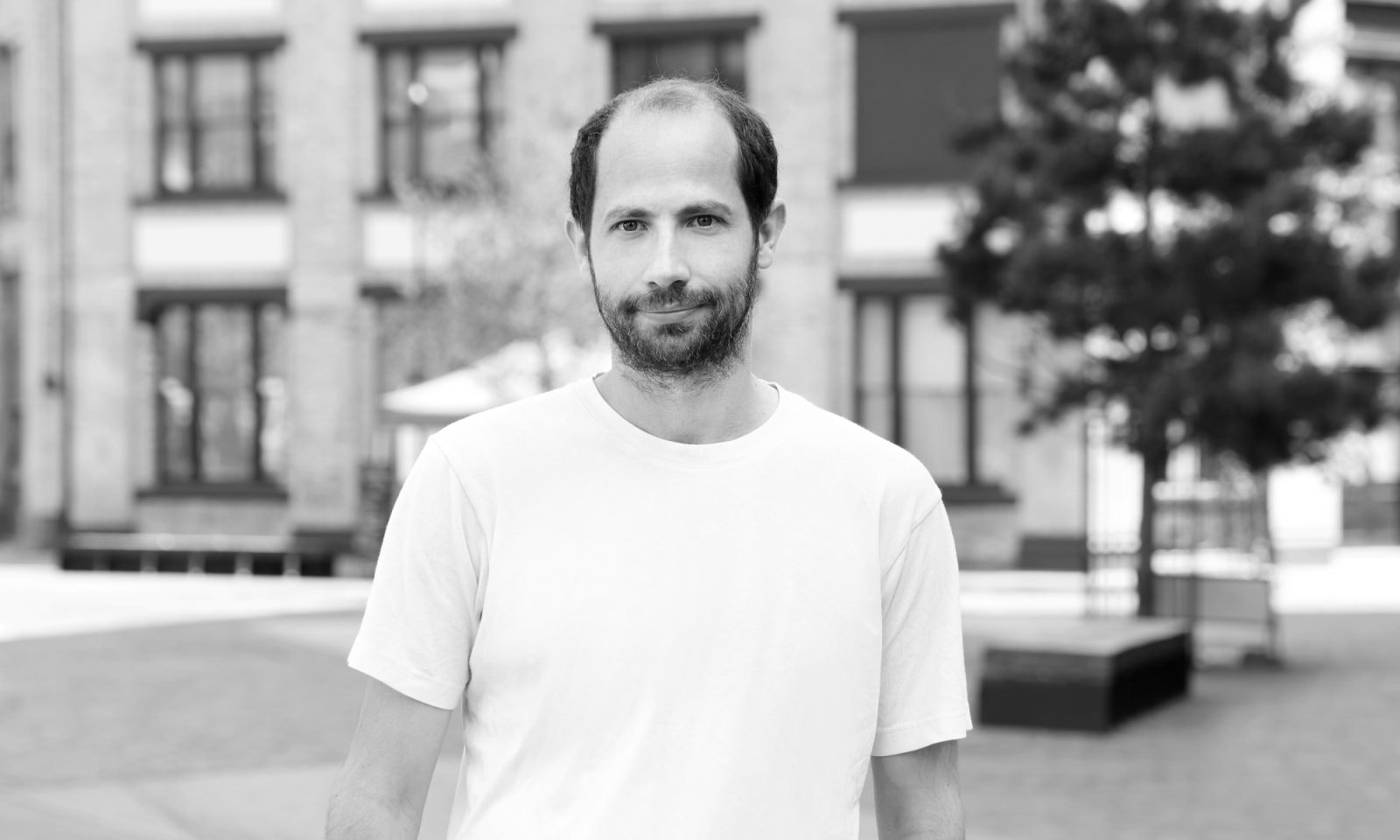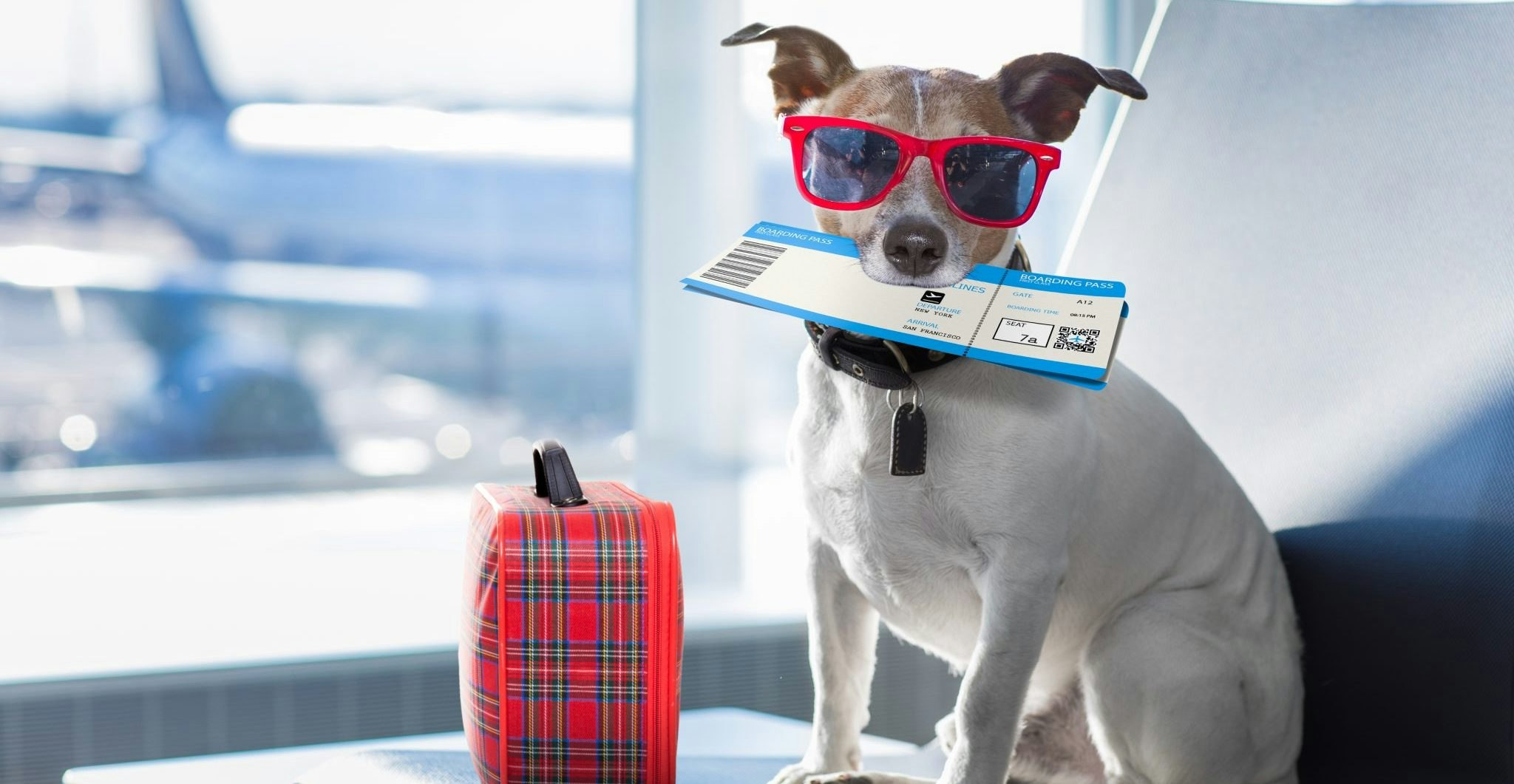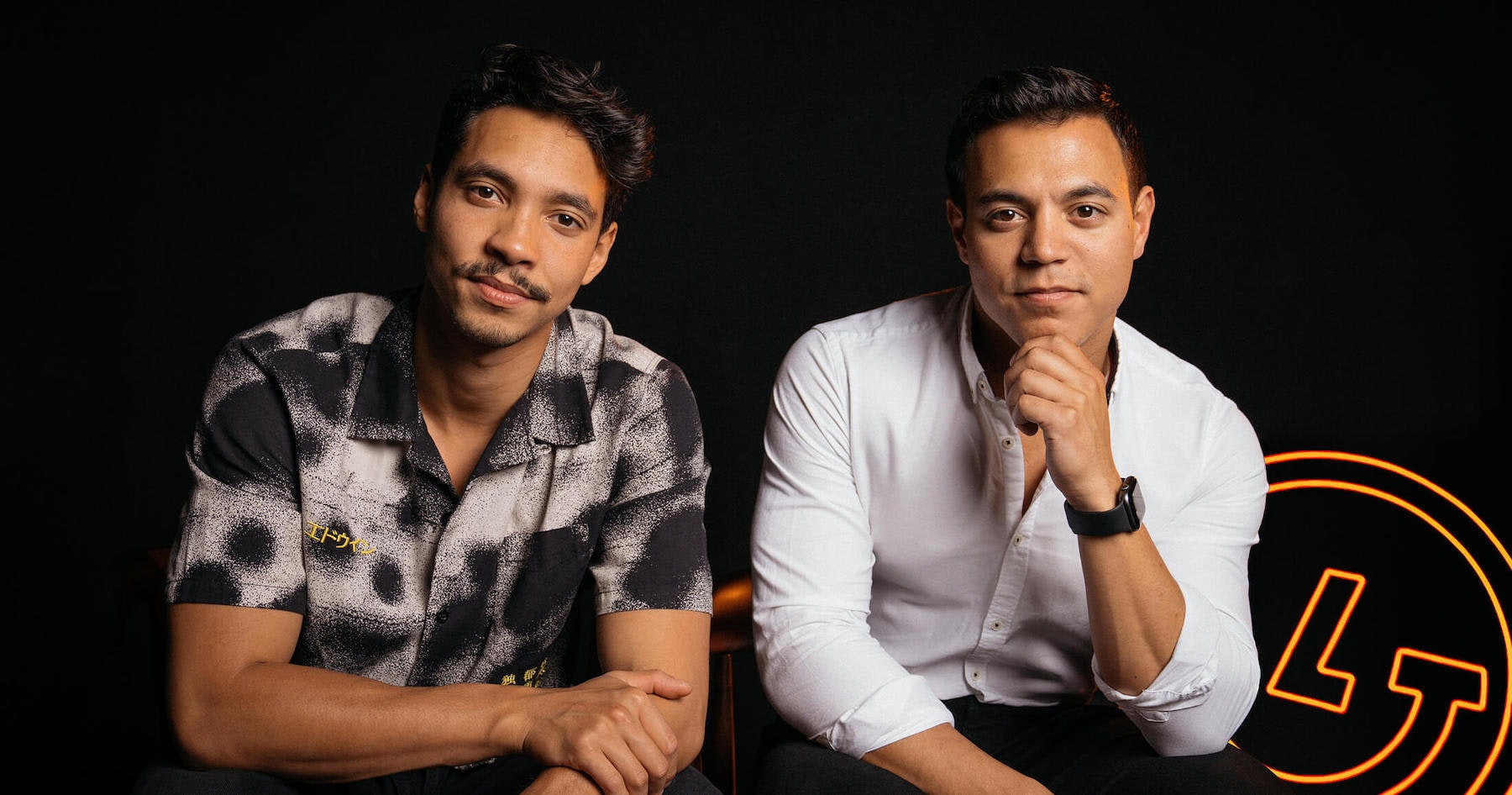Oscar Pierre is one of, if not the, best-known entrepreneurs in Spain. His delivery company Glovo — which was bought by its bigger, listed competitor Delivery Hero in 2022 — is one of the country’s big international success stories, and now Pierre is using his experience (and financial resources) to help Spain’s next generation of entrepreneurs.
Last year he raised a new VC fund, Yellow, with his Glovo cofounder Sacha Michaud, to back founders from Barcelona, Madrid and Paris, but he says the art of finding deals often feels a little too demanding for someone who’s “not the most social person.”
Today, he’s also still running Glovo, largely independently of its new parent company. The business has 20m customers in 1,500 cities across 26 countries, including Spain, Italy, Ukraine, Kenya, Kyrgyzstan and Kazakhstan — and might consider further expansion soon, Pierre tells Sifted. On its app, you can order everything from a Burger King to groceries to flowers, from both independent high street businesses to big global chains.
It’s raised more than €1bn from investors and employs over 4,000 people, while working with around 65,000 riders. That — and its merger with Delivery Hero — has put it firmly in the eye of regulators, who are looking at both anti-trust allegations, and the employment status of its couriers. (A Delivery Hero financial report published mid-2023 suggested the company might have to pay between €200m-400m in fines and retrospective taxes if authorities reclassify self-employed riders as employees. Glovo has appealed these fines and the judicial processes are ongoing.)
On Startup Europe, The Sifted Podcast, editor Amy Lewin asked Pierre about his budding VC career, what’s going on in the southern Europe startup scene, the state of the food delivery market in 2024 — and if he’s thinking about his next move yet.
Read on for a lightly edited and condensed version of their conversation — or listen to it here.
Let's talk about what the food delivery scene looks like in 2024. Households and small businesses are still obviously feeling the pinch from inflation and rising energy prices — and supply chains are still getting hammered. What impact is that having on your business?
We’re seeing acceleration again in the industry, across most of our markets. We’ve started 2024 very strong. There are two factors here, of course: we are a service that people can decide to cut costs on. At the same time, it remains a very underpenetrated industry. There are a lot of new customers joining the platform every single year; we’re seeing some countries where 5% of the population join Glovo for the first time, or order for the first time, every year — so it’s still a very high rate of adoption.
At the same time, we and our competitors have seen some of our previous cohorts reduce the frequency of their orders a little bit. Overall, the two factors add up to positive growth.
During the pandemic we saw heaps of speedy grocery startups launch, bringing people goods in 15 minutes or less. That was — and is — an area that Glovo was active in. For many of those other companies, the margins didn’t really stack up, and we saw lots of them go out of business or get acquired. When you were looking at that funding frenzy, what did you make of it all?
I’m not going to hide that all of that craziness in fundraising and seeing a new startup in quick commerce popping up every week did generate some FOMO for us. But I think we stayed quite rational. When that boom of quick commerce startups came, we had already been working on quick commerce and delivering groceries for a few years.
It's a massive opportunity — but where positive economics only come after maturing your technology for many years. I think that is the main reason why it's still the biggest retail opportunity to be digitised; if you look at Spain, for example, only about 2% of groceries are bought online. You compare that to any other retail industry — electronics or fashion or travel — there’s no doubt that once the experience and the price makes sense for the user, penetration will go from 2% to 10% to 30%.
And we can see now that we have cracked that value proposition. Groceries and everything that is non-restaurant represents over a fifth of our business, and is growing much faster than our core business, which is still restaurants. We're really excited with the opportunity.
We have a dual model: we have our own dark stores that offer very fast convenience, a smaller number of SKUs [stock keeping units — ie. goods]; and we combine it with a marketplace that keeps getting richer and richer every month. Every month big retailers join the marketplace in all of our countries.
Working with these big companies is not easy. Sometimes they’re slow, most of their stores don't have good stock visibility — even in 2024, I still haven't found any retailer that has good, reliable visibility on the stock they have in the stores — which makes everything more complicated, because sometimes what the user wants is not available.
But I think we have cracked the service. I believe it's going to be bigger than restaurants in the future. It’s the biggest opportunity we can think of.
And do Glovo’s dark stores turn a profit?
Yes, they do. It's all about volume, and the benefit we have, versus other companies that only do dark stores, is the universe of users who open the app every single day, millions of people that open the app every single day that we can cross-sell to other verticals, which makes the CAC [customer acquisition cost] and the unit economics a lot cheaper. A big cost in the P&L for those companies was not only acquiring the users, but also getting that frequency — convincing that user to open the app again, and converting again.
We have achieved the volumes that you need; you need a few 100 orders per day per store to make that store profitable.
Another area, aside from quick commerce, that I noticed you were hiring for quite a few roles in is advertising. Tell us about your plans there.
Advertising is super exciting. We’re realising that we’re becoming a platform that is a lot more optimal for a lot of brands and advertisers than Facebook or Instagram or Google because of the intent of our users.
Our users open the app usually when they're hungry, or when they need convenience products. And that's a super high intent use case where as a brand you can advertise and reach new customers. For the last three years, we've been investing in a lot of technology and we're seeing a great product market fit with a lot of brands and also a lot of small businesses — restaurants and shops — that start investing in online for the first time. We can share a lot of data with them, and they can see how they can reach new customers in their city, and how they retain or don’t retain.
We have tens of thousands of SME advertisers, and more than 500 brands buying ads or data insights on our platform on a recurring basis.
Most of the industry has now crossed 1% of GMV [gross merchandise value] in ads — and we’re above that as well. Long term, I believe this can get to 5%.
What else might be next for Glovo?
We’ve been easy on expansion. You know the story of Glovo: we expanded tremendously starting in 2018 — we went from one country to 15, we launched South America, Eastern Europe, Africa — and then we realised we had spread ourselves too thin and we started reducing countries either through M&A or just closing.
For the last three years we've had a very solid portfolio of 26 countries. We might consider some new countries this year but that’s still not confirmed.
In terms of categories, I think doing groceries well is so complex. It's a business where delivering with the right delivery time, delivering exactly what the user needs, making a profit and working well with all of those retailers… you need so much technology… I think we're still in day one of making that online experience great. That’s taking a lot of our efforts outside of our core business in restaurants.
There are also categories outside of groceries that we still haven’t fully cracked but that are growing tremendously, at triple digit. Every time we focus on categories like pets — delivering from pet shops, or flowers or pharmacy products — we see tremendous growth.
It’s still very early, but a lot of people are starting to realise, "Why should I order anything on Amazon that I can get on Glovo for the same price, delivered in 25 minutes?" Always the tricky thing here strategically is: what is the time to market? How critical is it that we do this this year, or can we postpone it next year? That's why we haven't been pushing these categories a lot but we're seeing a lot of growth.
You’re not fully focused on Glovo anymore. You’re also an investor… Tell us more about Yellow, the VC fund you set up.
For the last few years, Sacha [Michaud, Glovo cofounder] and I have been dedicating time to entrepreneurs and doing some business angel investments, very focused in Barcelona. We had a lot of deal flow that reached out to us proactively and organically and we've been dedicating some hours to it every week. It's something that we enjoy a lot: we learn and we feel we help, we feel we add value when we talk to entrepreneurs by sharing our ambition — our stories of expanding.
So Yellow is a continuation of this, it's making it a bit more professional. It got to a point where I was spending more time in the notary than meeting entrepreneurs. We had done about 35 small investments and it was a bit of a chaos to manage it. So we met with Adam Lasri, who was leaving Atomico and had the ambition to build a very small fund to invest in the best entrepreneurs in the south of Europe. He's based in Paris, which is where he has the biggest network. We aim to be super entrenched in the Barcelona, Paris and Madrid ecosystems — and to see everything that is happening in these three cities.
Overall, we felt it was super complementary: Adam wanted to run this full time, we don't have the time to run a fund full time — or the ambition to become a full time investor — but we did want to invest money, and keep investing a few hours a week. And this is how we came up with Yellow.
It's a €30m fund that we closed this summer. The fundraising was really fast. And we've so far done three investments, almost four. We always co invest with other funds so we always take very small cheques — €200-300k. And it's really exciting, it's very stimulating. Every week we see and meet great ideas, great entrepreneurs.
Paris of course, is a lot more advanced, in terms of talent and ambition and quantity of opportunities. Barcelona and Madrid are still behind — but it's so, so much easier to build a business now in Barcelona or Madrid than it was seven years ago. There's already 10 relevant scaleups that you can hire from, with senior and experienced talent. So I'm super bullish on the south of Europe market as a generator of a lot of new scaleups in the tech ecosystem.
What surprised you most about setting up a VC fund?
I thought fundraising for a delivery startup was the worst thing in the world. But I think fundraising for a fund is even worse, especially these days. When you fundraise for a startup, you just need one yes. You just need the lead investor and the rest follows — you just need to optimise for that one yes, and maybe that lead investor will take 60% of the round. For Yellow, I think they pitched to over 300 LPs to get 150 yeses, and you need 150 yeses — at least the way we organised our fundraising with lots of very small tickets, because we wanted to build an ecosystem. So it was really tedious fundraising; although we did it in four months, it was a lot of hours put into repeating the same message.
I've also seen how to be an investor, especially at the early stage, you need to be a social animal — which is something that I’m not; I’m not the most social person. To see everything and to be aware of all the deals that are happening you need to be socialising with so many people in the ecosystem every single day.
Now you’re at such a different stage of the company to these very early stage founders. Does it make you want to go back to the very early stage where all the possibilities are open to you?
I think if Glovo had been acquired by any other large delivery company, I’d be out. I’d be building something new maybe or taking some time off.
But the operating model of Delivery Hero is very unique. They’ve been acquiring a lot of local winners — like Talabat in the Middle East or Woowa in Korea — and they provide a lot of support, but also a lot of independence to each one of these platforms.
I'm having a lot of fun. It's incredible how, after two years, and with no retention bonus scheme or anything, I'm still super excited. It's also a very different role for me; the first six or seven years of Glovo I was 70% of my time fundraising, which was tough and I ended up a bit burned out. Now I'm enjoying just being a more operational CEO, focusing a lot more on our talent and our product and our countries. So I consider myself super lucky. And so far, I’m not thinking about starting something new.
We’ve been writing a lot about the likely wave of M&A that’s coming. What advice would you give another founder whose startup is potentially getting acquired by another company?
You hear quite often how nobody complains about selling, and I think it's true. And a lot of people complain about not selling.
Founders are by DNA optimistic, and we always think the future will be brighter. When you get an offer, and the company's doing well, you always think, "Hey, but this can get better and we can grow more and we can be more profitable and we will get better offers." But maybe my advice to founders would be to be very aware of this DNA bias that we have because I've seen so many founders that had an opportunity to sell, they didn't and then for external or internal reasons things started going badly.
And once you’ve crossed the seven, eight years, it’s a cycle; as a founder, you’re almost obligated to start returning profits and liquidity to your investors and your employees. And then, if you’re lucky to find someone that will give this independence, that’s an additional perk for you as a founder — but your fiduciary duty is your return to investors and to employees.
And to channel something I feel Americans always (rather annoyingly) say about Europeans, do you think you lacked ambition? Should you have tried to take Glovo public?
I think we were realistic. It was a viable path, we were working with bankers. But we were operating in a global delivery industry where we had three competitors that were 10x our top line. At that moment, we were around €3.5bn in top line, maybe; Delivery Hero, DoorDash and Uber were above €40bn each. And in our industry, you need to win, you need countries that are your profitable markets, and to be profitable, you need to be the leader in those markets.
When you're competing with such a scale gap, you're really exposed to start losing battles. Because, if I’m Uber, for example, and I want to really hurt Glovo, I'm just going to focus on their two or three profitable markets, invest a few tens of millions of euros, which for them at their scale is not that big, and then you generate a lot of damage to that small competitor. So even though we were large and we had leadership positions, because of the lack of scale in this industry we were still really exposed to lose the entire battle.
We did consider an IPO, but it's not that we didn't do it because of lack of ambition. A viable path would have been to team up with other Glovo-like delivery companies of our size to gain more scale and maybe IPO that merged business, but that also didn’t happen.
Listen to the whole conversation to hear Pierre’s thoughts on gig economy regulation, and what he loves most about being a tech founder, in the full podcast episode here.



